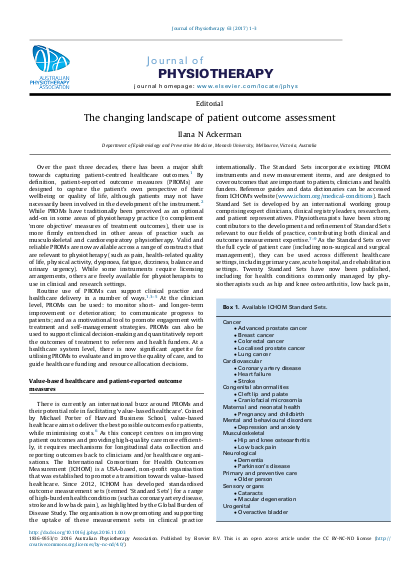
Over the past three decades, there has been a major shift towards capturing patient-centred healthcare outcomes. By definition, patient-reported outcome measures (PROMs) are designed to capture the patient's own perspective of their wellbeing or quality of life, although patients may not have necessarily been involved in the development of the instrument. While PROMs have traditionally been perceived as an optional add-on in some areas of physiotherapy practice (to complement ‘more objective’ measures of treatment outcomes), their use is more firmly entrenched in other areas of practice such as musculoskeletal and cardiorespiratory physiotherapy. Valid and reliable PROMs are now available across a range of constructs that are relevant to physiotherapy (such as pain, health-related quality of life, physical activity, dyspnoea, fatigue, dizziness, balance and urinary urgency). While some instruments require licensing arrangements, others are freely available for physiotherapists to use in clinical and research settings.